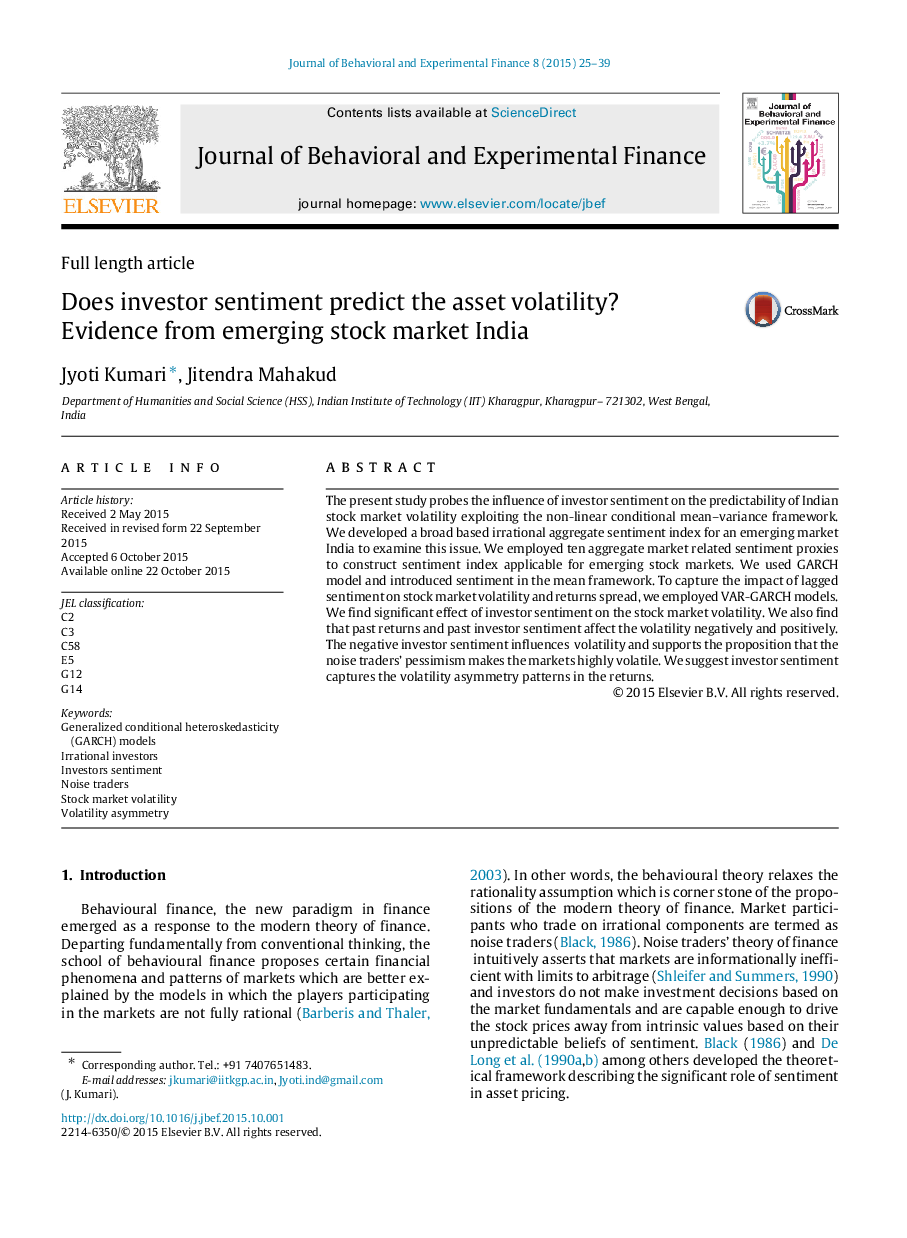| Article ID | Journal | Published Year | Pages | File Type |
|---|---|---|---|---|
| 931695 | Journal of Behavioral and Experimental Finance | 2015 | 15 Pages |
The present study probes the influence of investor sentiment on the predictability of Indian stock market volatility exploiting the non-linear conditional mean–variance framework. We developed a broad based irrational aggregate sentiment index for an emerging market India to examine this issue. We employed ten aggregate market related sentiment proxies to construct sentiment index applicable for emerging stock markets. We used GARCH model and introduced sentiment in the mean framework. To capture the impact of lagged sentiment on stock market volatility and returns spread, we employed VAR-GARCH models. We find significant effect of investor sentiment on the stock market volatility. We also find that past returns and past investor sentiment affect the volatility negatively and positively. The negative investor sentiment influences volatility and supports the proposition that the noise traders’ pessimism makes the markets highly volatile. We suggest investor sentiment captures the volatility asymmetry patterns in the returns.
